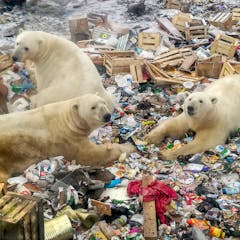
Articles on Norway
Displaying 1 - 20 of 117 articles

Norway has become the first nation on earth to allow deep-sea mineral exploration. But opening this industry could put Norway in murky legal waters.

Precedent set by court in Norway could embolden judges and campaigners further afield.

The prize has gone to a Norwegian playwright and novelist whose work examines the lives of ordinary people on the outer reaches of society.

Part 1 of Inside the Oslo Accords, a three-part podcast series from The Conversation Weekly, marking the 30th anniversary of a key moment in the Israel-Palestine peace process.

Native trees have been found at new heights in the Scottish Highlands, demonstrating how mountain woodland could recover from deforestation – benefiting humans, wildlife and climate issues.

African teams take the football world cup by storm.

For now, phosphate rock mining is dominated by China and Morocco.

Bringing up the subjects of autonomy and Norway has always been an effective way for Orcadians to draw attention to their grievances with central government.

Evidence suggests that Scotland’s bottle deposit scheme would prevent huge amounts of litter from entering the environment.

DNA analysis reveals a large migration of people into Scandinavia during Viking times.

Sweden is considering a deal to send foreign prisoners to jails in other countries – but is this just a way of getting rid of unwanted foreign criminals?

A pilot project at a Pennsylvania prison is trying out lessons from Scandinavia that could offer some ideas for reforming US prisons.

Researchers from the University of Oslo have drilled to the bottom of the Kongsvegen glacier. Find out why and how they are listening to the destabilisation of Arctic glaciers: The MAMMAMIA project.

Russian artists are finding an artistic home in Kirkenes, a small Norwegian town 15 kilometres from the Russian border.

The Soviet Union was a latecomer to industrial whaling, but it slaughtered whales by the thousands once it started and radically under-reported its take to international monitors.

Polar bears are increasingly seeking sustenance in human trash because of melting sea ice and a loss of hunting opportunities. The result is a rise in human-bear conflict – and dead bears.

Calls to export Canadian oil and gas to Europe are repackaging ethical oil rhetoric. But Canada and Russia share similarities in energy policy making.

The Arctic Council was the world’s primary forum for cooperation among the eight Arctic nations and a channel for diplomacy – until Russia launched a war.

Nato’s military exercises in Europe are not a response to the invasion of Ukraine. But they are a handy way of sending Putin a message.

When entire sectors shut down, the demand for energy plummets.





